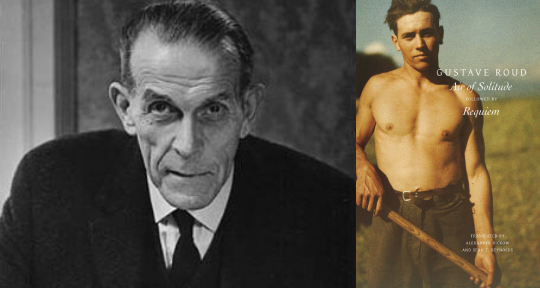Air of Solitude and Requiem by Gustave Roud, translated from the French by Alexander Dickow and Sean T. Reynolds, Seagull Books, 2020
It is a question of the supreme instant when communion with the world is given to us, when the universe ceases to be a perfectly legible spectacle, entirely inane, to become an immense spray of messages, a concert of cries, songs, gestures ceaselessly beginning again, in which each being, each thing is at once sign and carrier of signs. The supreme instant also at which man feels his laughable inner royalty crumble, and trembles, and gives in to the calls coming from an undeniable elsewhere.
Once again the joy has fled with the change of season at the very moment we were about to come upon it.
Air of Solitude (Air de la solitude), the title of Gustave Roud’s most famous work is perfectly suited to the poet, who lived a secluded life isolated in Carrouge, his Swiss village in the Haut-Jorat. Moreover, it is crucial for the understanding of his poetry, which is rooted in these landscapes and customs, but often seen from an outside perspective. Considered one of Switzerland’s greatest poets, Roud’s work had a profound influence on the younger generation, the most famed of which is his mentee, prominent poet Philippe Jaccottet.
Roud published Air of Solitude in 1945 and Requiem, the second section of this two-part collection, in 1967. Whilst Air of Solitude expresses a celebration of—and nostalgia for—the inhabitants and landscapes of the Vaudois, Requiem displays Roud’s solitude through a personal quest to find a mystical fusion with nature and his beloved mother, who had already passed. This edition of his most important prose poems is now translated for the first time into English by Alexander Dickow and Sean T. Reynolds. READ MORE…



